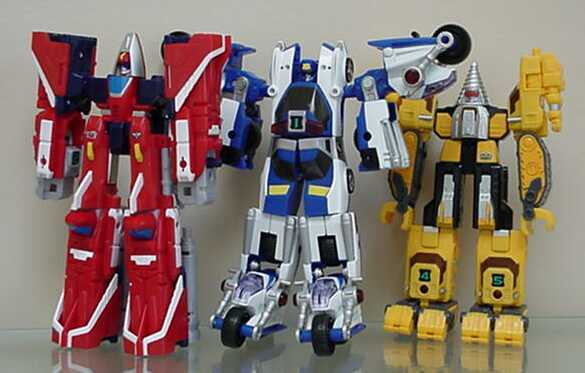Memories of Stan Lee (1922 - 2018)
With the recent passing of Stan Lee, my membership in the lifestyle cult of geekhood requires me to write a post that reflects upon Lee's monumental influence on modern nerd culture. Even though I've consumed countless Marvel comic books, cartoons, TV shows and movies, I would hardly consider myself to be well-versed in the history of Marvel comics and Lee's career. Nevertheless, I can definitely say that there's something genuinely welcome and endearing about a creator who's ready and willing to play alongside his creations in the same sandbox.
I wasn't around when Lee first entered the comic book industry in the 1939, or when he debuted the Fantastic Four in 1961, or when he and his collaborators created the key characters throughout the '60s that would make up the foundation of the Marvel universe. I got my first exposure to Lee's handiwork during the mid-'70s, thanks to an educational TV show for kids called The Electric Company. The TV show would have brief segments involving Spider-Man, while the tie-in magazine also included Spider-Man mini-comics called "Spidey Super Stories". The TV show version of the character didn't say anything and didn't reveal much about who he was, but the mini-comics in the magazine introduced me to Spider-Man, his origin, his supporting cast, his archvillains, and a few of the other superheroes from the Marvel universe. It was colorful, fun and approachable ... and I was hooked.
Stan Lee, with the Electric Company version of Spider-Man.
Looking back, Stan Lee and Marvel did all sorts of things to promote their comics to new readers (case in point: The Merry Marvel Marching Society, or M.M.M.S.), but putting Spider-Man on Electric Company was a stroke of genius. Shows such as Electric Company were designed to encourage kids to read, so why not have kids read superhero comic books as part of their growing literacy? As a result, I pestered my parents to buy all sorts of Spider-Man stuff, including a few Spider-Man comics. This is where I first "met" Stan Lee. He wrote the "Stan Lee's Soapbox" column on the Bullpen Bulletins page in every issue, and he would occasionally make hand-drawn appearances in an advertisement or two within the comics. My prepubescent mind didn't completely understand what Lee's role was in making the comic books that I read, but at least I knew that Stan Lee had something to do with Spider-Man and the rest of Marvel's superheroes.
Above: A hand-drawn Stan Lee promotes Pizzazz magazine.
Below: A Stan Lee's Soapbox column, where Lee encourages readers to listen
to a radio interview he did on a program called Focus on Youth.
When the '80s arrived, NBC aired Spider-Man and His Amazing Friends and The Incredible Hulk as part of its Saturday morning cartoon lineup. Stan Lee would provide the opening narrations to these cartoons, eagerly talking to us "true believers" as we watched our favorite heroes embark on their latest adventures. (Sure, the Super Friends cartoon had a narrator too, but it just wasn't the same.) Because of Lee's direct involvement in these cartoons, I began to view him as not just someone who worked on Marvel's comic books; it felt like he was an essential part of the Marvel universe itself, spinning the many tales that made the Marvel universe tick.
I found out later that Lee began inserting himself into the Marvel comic stories in bits of meta-humor as far back as the '60s, so what I saw in the '70s and '80s was something that was baked into Marvel's identity since the beginning. Lee occupied many positions within Marvel, but he wasn't just a co-creator of characters and stories; he was Marvel's front man, the guy who reached out to readers with seemingly boundless enthusiasm to keep them engaged with all things Marvel. He was like a fun, quirky uncle who would tell anecdotes that were actually entertaining. Long before Marvel's Deadpool decided to break the fourth wall, Lee would do it himself with a wink and a smile. He gave the Marvel universe an appearance of approachability, even when Marvel as a company wasn't doing so well or when he wasn't at Marvel at all--his influence was that strong, whether he meant for it to be or not.
To add a bit of perspective to Lee's contributions to Marvel and comic book culture in general, consider how long he was involved in the comic book industry. He was in his teens when he started at Timely Comics, and he was pushing 40 when he created the Fantastic Four. By the time Marvel established itself as a blockbuster movie franchise around ten years ago, Lee was in his mid-80s. Who'd have thought that a group of characters that Lee co-created during an unexpected creative spurt in the '60s would still be making astonishing amounts of money to this very day? It's a pop culture miracle.
I'm convinced that Lee's regular presence in the Marvel universe has been an essential part of Marvel's ongoing popularity. The superheroes he helped to create were flawed and relatable, but his recurring presence alongside them made the Marvel universe inviting and fun. Say what you will about DC, but I don't think an army of dark and gritty superheroes could do what Stan Lee did for Marvel. 'Nuff said!
Of Stan Lee's dozens of cameos, my personal favorites are the ones
he did for the Lego Marvel video games. Excelsior!








Comments
Post a Comment